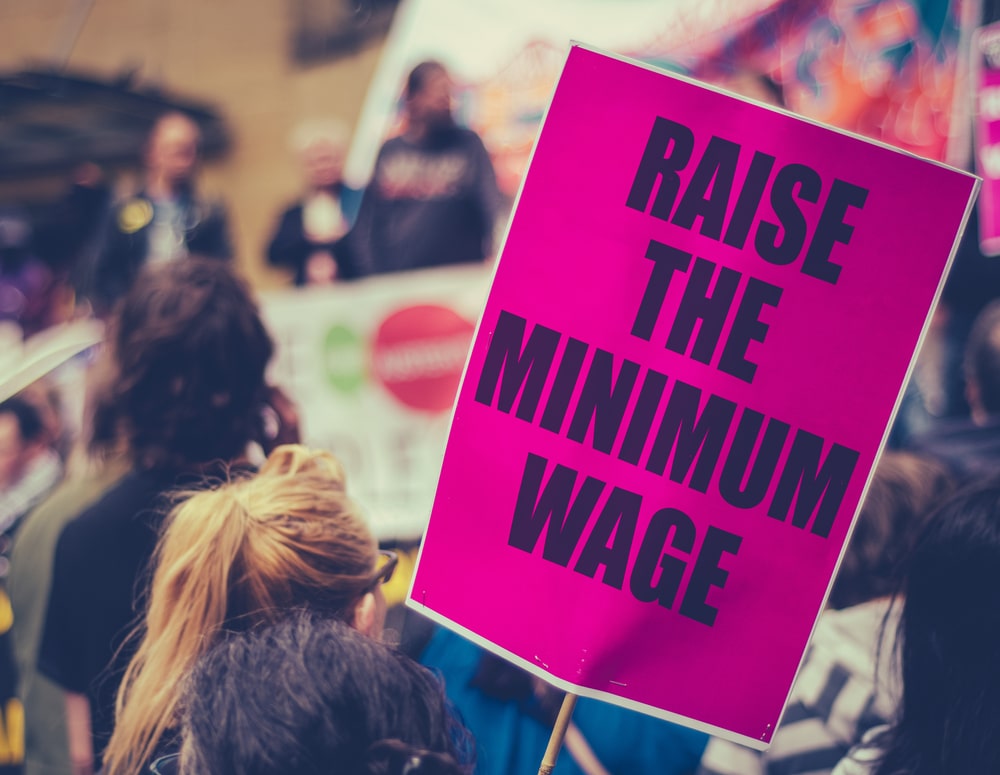Pennsylvania has not updated its minimum wage since 2006 and actually maintains the lowest allowable rate in the country at $7.25/hour – the federal minimum. In fact, 30 states, including many with a lower cost of living, have a higher minimum wage than Pennsylvania.
PA State Senator Christine Tartaglione wrote a Senate Co-Sponsorship Memoranda on April 8, noting that in the near future she will introduce legislation that will raise Pennsylvania’s minimum wage to a living wage of $20/hour on July 1, 2024, and provide cost of living-adjusted increases every five years thereafter by tying the wage to the Consumer Price Index for Urban Consumers (CPI-U). This legislation also sets the tipped wage to 70% of the minimum wage.
“Tellingly, $7.24/hr is the very definition of a poverty-level wage for a childless adult under the Department of Health and Human Services’ Poverty Guidelines and is even further below the threshold when factoring in children,” said Tartaglione. “Keeping people in poverty is not how we move the Commonwealth forward – our current wage is immoral and unjustifiable.”
After almost two decades of inaction, even a wage of $15/hour is no longer adequate. MIT estimates that a childless adult Pennsylvanian needs $21.95/hour to support themselves based on our state’s typical expenses in 2024.
“If our legislature had passed a $15/hr minimum wage 10 years ago and tied it to the CPI-U, it would be just short of $20/hr today,” said Tartaglione. “However, this legislation aims to get Pennsylvania back on the right trajectory following 10 years of missed opportunities and there is no doubt that the need across our state is still present.”
James O’Malley, Deputy Director of Communications for Bucks County Commissioner Diane Ellis- Marseglia, wrote that since taking office in 2020, Marseglia’s administration has lifted the minimum wage for the vast majority of County positions to $15 or more. “In addition, all three County Commissioners recently joined government leaders from Philadelphia and the collar counties in signing a letter to Gov. Josh Shapiro offering support for a $15 minimum wage statewide,” he said.
READ: Same Job? Same Pay. It’s That Simple.
Republican county commissioners Gene DiGirolamo from Bucks and Thomas DiBello from Montgomery both support the minimum wage hike. DiGirolamo’s office did not respond to a request for comment.
Think minimum wage jobs are only in certain industries like retail and restaurants? Think again. In the Fall, a Bucks County family publication posted a job on Indeed for a “social reporter” at the rate of $12 per hour. A Philadelphia luxury publication does not pay its writers.
52-year-old Mary Dolan (pseudonym), a Mexican immigrant and mother of two, has worked at an Italian restaurant in Bucks County for over 20 years as a busser. She typically works 40 hours a week and is paid $8 an hour with $10 per hour for overtime.
Dolan has looked for work outside the industry but said it is tough to find something else. She brings in about $200 a week in tips, depending on the server.
The owner passed the restaurant down to his daughter, who has about 20 employees.
Dolan said dishwashers and people in the kitchen get paid a bit more. Waiters earn between $2 to $3 an hour plus tips.
She lives together with a boyfriend in a two-bedroom apartment building; they have to rent one of the rooms to help pay for the rent. Prior to that, her daughter would have to pay rent if they were not able to afford it.
READ: The Biden Campaign Returns To Pennsylvania With An Economic Plan That Benefits The Middle Class
On weekends, Dolan sometimes serves tables at private parties to earn additional income. She said if the minimum wage is raised, she might not have to have a second job.
Minimum wage workers – especially those who are “off the books” – are often taken advantage of by their employers and there is no outside agency monitoring this.
In more than 20 years of working for the family restaurant, she has never been paid vacation time or sick leave. “I only take off when I have an appointment with the doctor or something like that,” she laughed. “No vacation for me.”
About seven years ago, Dolan lived in the back part of the restaurant with another employee in separate rooms. They each paid the prior owner $300 a month in rent. The owner saw the opportunity of renting to people who didn’t have much money. Dolan lived there for two years.
Dolan used to do the restaurant’s laundry for big parties. She would get the tablecloths and napkins ready. This involved many hours of work, and it was heavy lifting. She stopped doing that because it was during the nighttime, and she didn’t like how things were being handled.
Two years ago, she had to take out the trash to the dumpster. Dolan slipped and fell on the stairs. She landed on her knee, and it was very painful. Since she does not have health insurance, Dolan went to the Abington Clinic to get it checked out.
READ: There Are Now Fewer Barriers to Birth Control In Pennsylvania, Unless You Are Poor
Although she suffered an injury, she kept on working. The clinic doctor told her that she had to do physical therapy. Dolan went to physical therapy for some time, but none of that was covered by the owner. Dolan had to pay the clinic out of pocket.
The owner never took responsibility for that. There was no worker’s compensation. These expenses were about $600.
In addition, the clinic required some paperwork to prove that Dolan was working. During that time, Dolan was “off the books” and didn’t have a pay stub. The clinic required a letter from the restaurant stating how many hours she worked and how much she was getting paid. Sometimes the owner would refuse to write the letter and other times she would write it when she could. The clinic needed the paperwork back within a certain timeframe, and there were times when Dolan would have to keep reminding her to write the letter.
About four or five years ago, Dolan got “on the books”. Since then, she pays taxes through an IRS number from the government.
A minimum wage hike to $20/hour would be a life changer for Dolan. “It would be good for me to only have one job since my knees get very inflamed and it hurts to be on my feet so long,” she said. “My days off would be to relax instead of having to do a second job.”
Dolan wouldn’t have to struggle so much with daily expenses, and could start saving for a much needed vacation.






